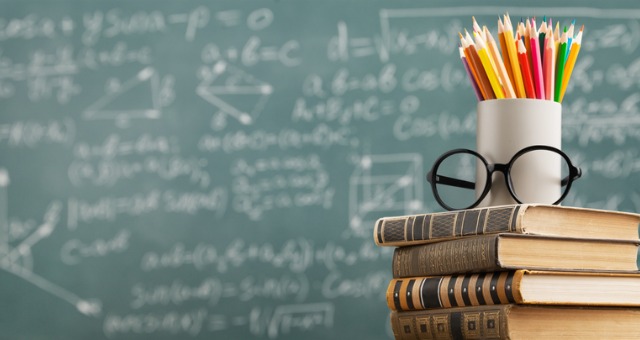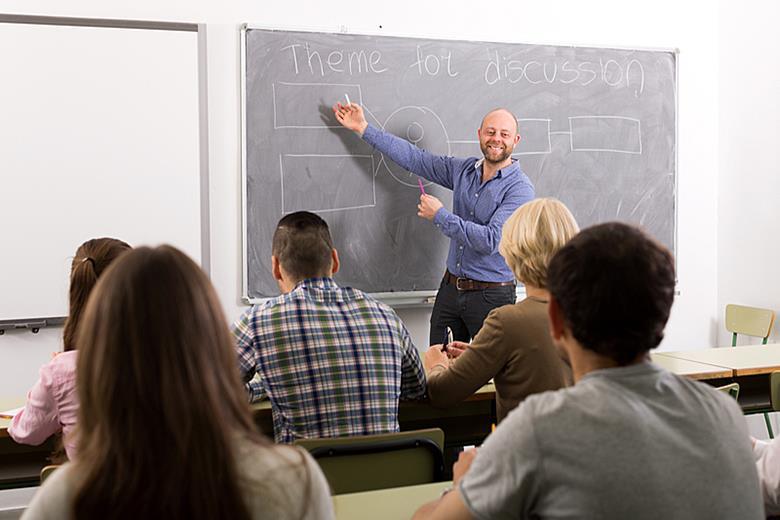Checking Out the Various Training Strategies in Key Science Education And Learning Today
Inquiry-based discovering, hands-on experiments, and the integration of innovation are redefining how teachers involve young minds. Furthermore, collaborative approaches and differentiated guideline are being employed to provide to the varied requirements of students, boosting both engagement and understanding.
Inquiry-Based Learning
Inquiry-Based Knowing (IBL) is an instructional method that urges students to check out clinical concepts with wondering about, investigation, and hands-on testing. This method highlights the duty of students as active participants in their knowing, promoting vital thinking and analytical skills. By involving with real-world concerns, students become curious and motivated, which boosts their understanding of scientific principles.
In IBL, educators serve as facilitators, leading trainees as they navigate their queries as opposed to supplying details straight. This student-centered approach enables differentiation, fitting various discovering designs and speeds. Students develop skills in formulating theories, making experiments, and evaluating data, which are vital for scientific literacy.
Furthermore, IBL fosters collaboration amongst pupils, urging them to share concepts and findings. This cumulative query promotes social skills and a sense of community within the class. The procedure of questions motivates resilience, as pupils discover to accept failure as a tipping stone toward understanding.
Hands-On Experiments
Hands-on experiments are a crucial component of reliable science education and learning, enhancing the concepts of inquiry-based understanding. These experiments permit pupils to involve straight with clinical principles, promoting a much deeper understanding with experiential learning. By adjusting materials and observing end results, young learners can comprehend abstract theories in substantial methods.
Such tasks advertise essential thinking and analytic skills, as trainees assume outcomes, conduct experiments, and examine outcomes. This process motivates them to ask questions, fine-tune their understanding, and create a scientific mindset. Furthermore, hands-on experiments can be tailored to varied knowing styles, ensuring that all trainees have the possibility to involve meaningfully with the material.
In addition, hands-on experiments commonly urge collaboration among peers, promoting teamwork and communication skills. Working in groups enables trainees to share ideas, go over searchings for, and gain from one an additional, which boosts their total instructional experience.
Incorporating hands-on experiments into the main scientific research educational program not just enriches the learning environment however also grows a long-lasting passion in scientific research. By proactively joining their education and learning, pupils are most likely to create an enthusiasm for scientific inquiry that expands past the class.

Innovation Combination
Integrating innovation into primary science education has become significantly important in fostering student involvement and improving finding out end results. The usage of digital tools, such as interactive simulations, online laboratories, and academic software application, supplies pupils with opportunities to explore clinical ideas in innovative means. These sources promote a much deeper understanding of complicated subjects by permitting students to imagine and manipulate variables that would certainly be unwise in a standard classroom setup.
Additionally, technology integration urges customized learning experiences. Students can advance at their very own try this web-site rate, reviewing challenging ideas via multimedia resources, which deal with various discovering styles. This versatility not only sustains individual growth however also grows a sense of freedom in learners.
Additionally, modern technology serves as a bridge to real-world scientific research, connecting students with present research and professional contributions. Access to clinical journals and online databases widens students' point of views on clinical questions and promotes crucial assuming skills.
Collaborative Discovering
Joint knowing plays a crucial duty in primary scientific research education by cultivating teamwork and communication skills among pupils. This approach motivates learners to interact, share knowledge, and participate in analytical, which improves their understanding of scientific ideas. By joining team tasks, trainees find out to express their concepts, pay attention to varied perspectives, and negotiate services, all of which are essential skills in both academic and real-world contexts.

Research study suggests that collective knowing can bring about boosted motivation and involvement in science subjects, as other trainees find satisfaction in common experiences (primary science tuition Singapore). Furthermore, this technique prepares pupils for future collaborative ventures, outfitting them with the abilities required for efficient synergy in college and professional atmospheres. Inevitably, welcoming collaborative knowing in main scientific research education can dramatically enrich the discovering experience and advertise a much deeper understanding of clinical questions
Separated Instruction

Set apart instruction can manifest in various ways, such as varying the material, processes, or products of discovering. Educators may use tiered jobs that supply varying degrees of intricacy, enabling students to function at their respective preparedness degrees. Furthermore, flexible organizing methods can help with collaboration amongst trainees with different capacities, promoting peer discovering.
Assessment plays a crucial role in this strategy, as it notifies guideline and assists educators comprehend each student's special needs. Developmental assessments, such as monitorings and quizzes, can lead instructors in readjusting their methods to improve finding out results. primary science tuition Singapore. Inevitably, by executing separated instruction in main scientific research education, instructors can cultivate a much more equitable and efficient learning setting, equipping all students to reach their full possibility in comprehending scientific sensations
Verdict
In summary, the varied mentor strategies in main scientific research education, consisting of inquiry-based knowing, hands-on experiments, technology combination, joint knowing, and differentiated direction, jointly add to a more efficient understanding atmosphere. These approaches promote essential thinking, analytical abilities, and a much deeper comprehension of scientific ideas. By carrying out these methods, teachers can produce appealing and helpful classrooms that deal with the varied needs of pupils, inevitably cultivating a long-lasting rate of interest in science and enhancing scholastic success.
Inquiry-Based Discovering (IBL) is a pedagogical method that motivates trainees to check out clinical ideas through doubting, examination, and hands-on trial and error.Joint knowing plays an he said essential role in main scientific research education and learning by promoting teamwork and interaction skills amongst trainees.Research shows that collective learning can lead to raised motivation and engagement in scientific research subjects, as pupils discover enjoyment in common experiences.In fostering a comprehensive knowing setting, separated instruction arises as an essential technique to accommodate the varied demands and capabilities of pupils in main scientific research education. Inevitably, by executing set apart direction in key science education and learning, educators can cultivate an extra equitable and reliable understanding atmosphere, equipping all pupils to reach their full potential in recognizing scientific phenomena.